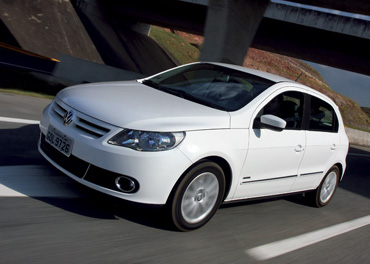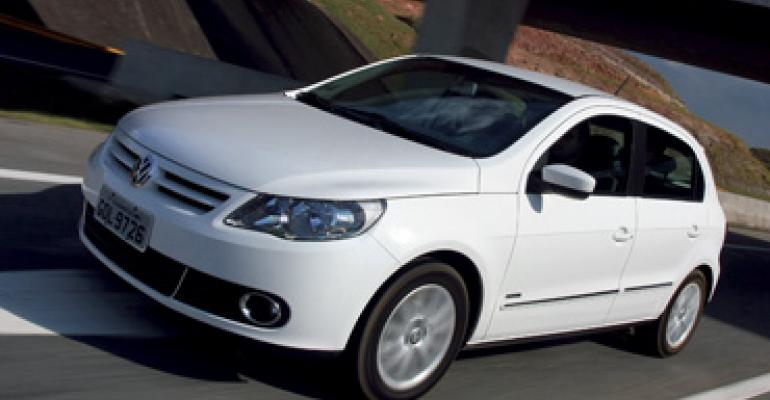
SAO PAULO – Brazil’s strong domestic vehicle market that helped the country overcome the global financial crisis in 2008 is struggling with this year’s economic turbulence and a flood of low-cost imports.
The declining economy has caught the local industry with an overstock of inventory, good for more than a month of sales. Some auto makers are reducing production by mandating collective vacations.

Despite the high levels, analysts note inventory in 2008 represented 60 days of sales.
Exports, which have been weakening since they helped shore up sales through the dark days of 2008, no longer are as effective in easing industry ills due to the appreciation of the domestic currency.
An aid package the government promised to provide the industry, with measures to improve Brazil’s competitive edge in the global market, is not yet ready and may be nullified by the worsening economic conditions.
Yet, Brazil continues to be seen as a market where there still are plenty of car buyers, and global car companies are looking to “dump their cars here,” says Paulo Butori, president of the National Association of Vehicle Component Manufacturers, Sindipecas.
Low-cost imports are making a dent in domestic sales, as Brazilian-made vehicles on average are 30%-35% more expensive than their foreign equivalents.
Auto makers could suffer another hit from an expected drop in commodity prices that would cause a decline in overall consumption.
Industry executives and consultants envision such a scenario with concern, but are less pessimistic than Sindipecas’ Butori.
Jaime Ardila, president of General Motors’ South America unit, says he he does not believe any company is thinking of changing its investment plans. However, he is concerned about the impact of increased imports on local production.
"Everyone wants to export excess production to markets that are expanding, like Brazil,” he says. “Today, 22% of all cars sold in Brazil are imported. I will not be surprised if the imports reach 25%. That is one in four cars sold in Brazil will be imported.”
Despite the worries, total vehicle deliveries for the year through Aug. 15 reached 2.17 million units, up 9.3% from year-ago, according to the local manufacturers.
Brazilian auto makers are forecasting sales to total 340,000 vehicles for the month, which would make it the best August in the industry’s history and the best month so far this year.





